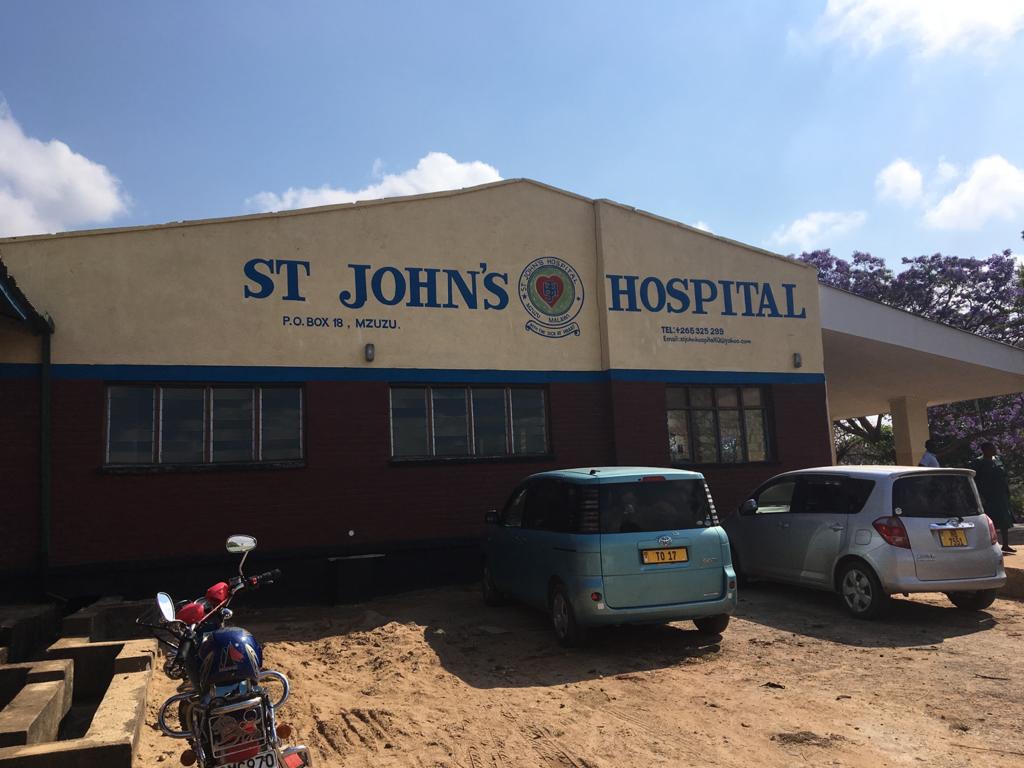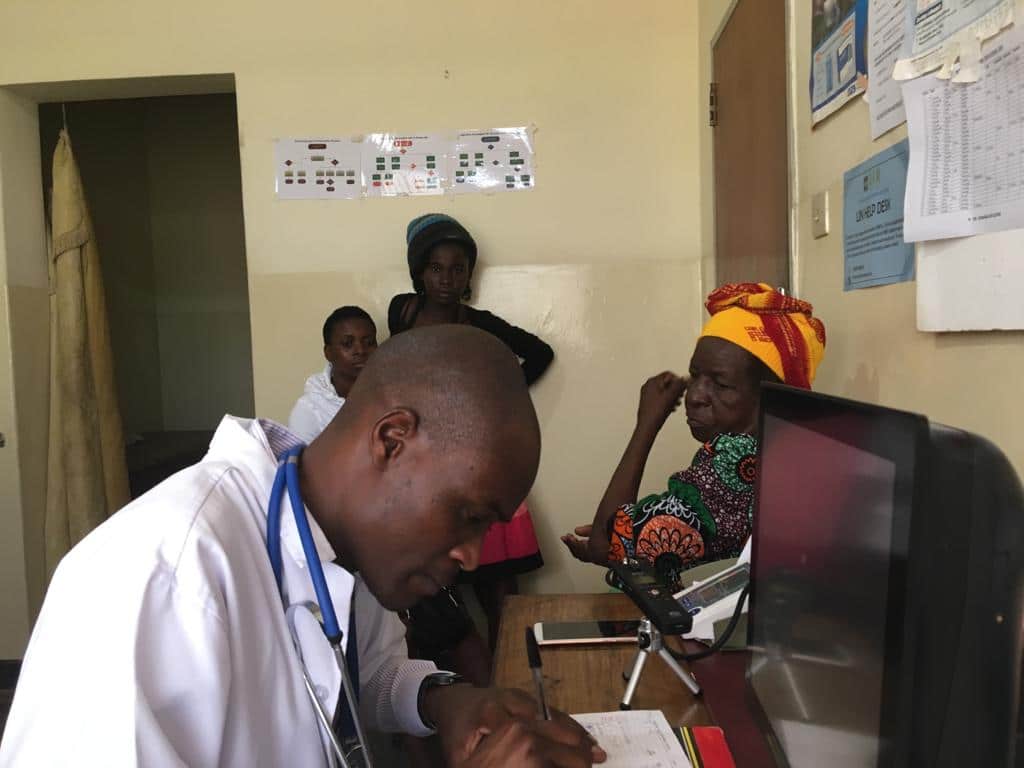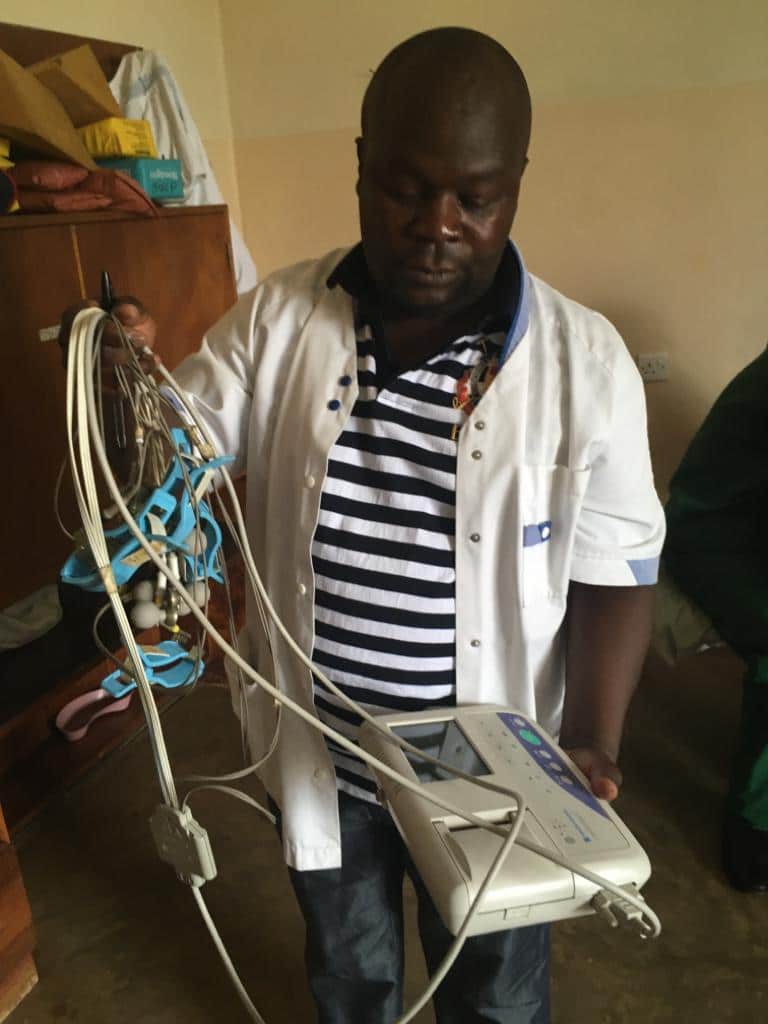Gorey-Malawi Partnership Tackles Rheumatic Heart Disease
 Non- communicable diseases and injuries (NCDIs) account for one third of Malawi’s deaths and disabilities. Contracting NCDs such as Rheumatic Heart Disease (RHD) or Chronic Obstructive Pulmonary Disease (COPD) including asthma, emphysema and chronic bronchitis means that sufferers are likely to face poverty as a result of lost livelihoods and high healthcare costs.
Non- communicable diseases and injuries (NCDIs) account for one third of Malawi’s deaths and disabilities. Contracting NCDs such as Rheumatic Heart Disease (RHD) or Chronic Obstructive Pulmonary Disease (COPD) including asthma, emphysema and chronic bronchitis means that sufferers are likely to face poverty as a result of lost livelihoods and high healthcare costs.
Referred to as the Gorey-Malawi Health Partnership, the Palms GP Surgery in Gorey, Wexford has partnered with St John’s Hospital, Mzuzu, Malawi to strengthen health systems and improve the management of noncommunicable diseases (NCDs) to prevent avoidable deaths, particularly in children. Undetected acute rheumatic fever (ARF) can lead to rheumatic heart disease (RHD), which in turn causes heart failure and death.
RHD is a disease associated with poverty and latent RHD—meaning RHD with no symptoms—has a high prevalence throughout many low- and middle-income countries. Studies in Malawi have revealed the high prevalence of latent RHD in the country. One study in Northern Malawi showed that 34% of patients attending a cardiac clinic had RHD. In one paediatric cardiology clinic in southern Malawi, 22% of attending children were affected by this disease.
 A 2016 review on echocardiography in adult heart failure in Malawi, suggested that valvular disease, mainly rheumatic, was the most frequent diagnosis among heart failure patients up to 2005. The majority of RHD cases are detected only when symptoms have developed at which point it is frequently too late to intervene. It is the aim of the Gorey-Malawi Health Partnership to reverse this trend.
A 2016 review on echocardiography in adult heart failure in Malawi, suggested that valvular disease, mainly rheumatic, was the most frequent diagnosis among heart failure patients up to 2005. The majority of RHD cases are detected only when symptoms have developed at which point it is frequently too late to intervene. It is the aim of the Gorey-Malawi Health Partnership to reverse this trend.
A lesser known fact in lower income countries where the disease is still prevalent, is the link between acute rheumatic fever and streptococcal throat infection which often precedes it. The tragedy is that the prescription of oral penicillin to treat sore throat can prevent rheumatic fever thus preventing RHD and the relentless march to heart failure and preventable death.
Indeed, the Irish contribution to eradicating rheumatic fever has itself a very interesting history. Few people realise that it was an Irish physician, Dr PJ Burke, writing in the Lancet in 1947 who first documented the effects of oral penicillin in reducing rheumatic fever. Further studies documented by Massett, an expert in the field, extrapolated as late as 1997 that the treatment initially advised by Burke reduced the incidence of the disease from 13% to 1% in affected patients.
The Partnership
In 2018, St John’s Hospital in Malawi identified asthma-COPD as its NCD of choice and worked with the Gorey Malawi Health Partnership to successfully implement an improved programme of treatment and prevention that reduced asthma-COPD admissions by 44%, and readmissions by 100%.
In 2019, the partnership commenced work to improve community awareness of rheumatic heart disease at Chigwere, a remote rural location in the catchment area of St John’s Hospital. This project builds on the experience of St John’s Hospital in developing education for people with HIV in the Chigwere area. It involves an education programme on sore throat, acute rheumatic fever and rheumatic heart disease to a core group of parents, teachers and community health workers.
Evaluation includes pre- and post- education questionnaires to measure appropriate learning and to examine the accuracy of local perceptions of rheumatic fever and rheumatic heart disease. This core group will then serve as facilitators for community and school groups to disseminate information on these conditions and understand the concerns of the local community.
Educational content is delivered in groups of no more than 30 people to ensure discussion and interest. In schools, students will be supported in awareness raising around rheumatic fever or RHD.
The implementation of a hypertension – cardiovascular health protocol at St John’s Hospital is now underway so that the project becomes more broadly based within the hospital and better aligns pharmacy supplies with hospital needs. As part of that initiative, a new role is in development for an NCD specialist nurse, serving across different departments within the hospital, to educate fellow nurses and assist the work of the clinical officers.
Benefits to the Irish Partner
NCD care is a major feature of primary care in Ireland. Similar to Malawi, there is now a government shift to further increase the transfer of NCD care to primary care in Ireland, offering shared learnings for both partners in this area.
Following the partnership work and outcomes on asthma, the Gorey practice has now commenced using magnesium sulphate for the management of severe asthma having witnessed the benefits evident in Malawi.
Response to COVID-19
 The Gorey Malawi Health Partnership worked with Health Service Executive’s Global Health programme, Irish College of General Practitioners and ESTHER Ireland to produce a series of short animated videos to assist health workers in low resource settings to prepare for and respond to the COVID-19 pandemic.
The Gorey Malawi Health Partnership worked with Health Service Executive’s Global Health programme, Irish College of General Practitioners and ESTHER Ireland to produce a series of short animated videos to assist health workers in low resource settings to prepare for and respond to the COVID-19 pandemic.
The series consists of 14 videos, and these are now promoted by Facebook, YouTube, published on the ESTHER website and in a series of newsletters to make them available for distribution both online and via WhatsApp. To view the full series of videos, click here.
CATEGORIES
- Restore Humanity Campaign
- Equity in Action Blog
- Training Programmes
- Sponsorship
- Vaccine Equity
- Get Global – Global Health Talks
- Student Outreach Team
- Get Global Young Professionals Talk Global Health
- Global Health Matters – Live Event Series
- Global Health Matters – IGHN Live Event Series
- An initiative of Irish Global Health Network
- ESTHER Ireland and ESTHER Alliance for Global Health Partnerships
- Global Health Matters – Webinar Series
- ESTHER
- IGHN Conferences
- Global Health Conference 2020
- Women in Global Health – Ireland Chapter
- ESTHER Partnerships
- Weekly Webinar Series
- 4th Global Forum on HRH
- Access to Medicines
- Archive Page Weekly COVID Webinars
- Clean Cooking 2019
- Climate Change and Health Conference 2017
- Conference Abstracts
- Conference Materials
- Covid FAQ
- COVID Funding Opportunities
- COVID-19
- COVID-19: Gender Resources
- Dashboard and online resources
- Education
- ESTHER Alliance
- Events
- Events & News
- Funding covid
- Global Health Exchange 2018
- Global Health Exchange 2019
- Global Health symposium 2019
- Health Workforce/HRH
- Homepage Featured
- Homepage recent posts
- IFGH 2011-2012 Conference and Events
- IFGH 2014 Conference
- IFGH Multimedia
- Irish AIDS Day 2017
- Irish News and Feeds
- Key Correspondent Articles
- Key Correspondent News
- Maternal Health
- Multimedia
- News
- News & Events
- Newsletter
- Opportunity
- Our LMIC's Resources for COVID19
- Partner Country News and Feeds
- Past Events
- Policy
- Presentations
- Recurring events
- Reports & Publications
- Research
- Resources
- Student Outreach Group
- Students Corner
- TEDTalks
- TRAINING COURSES FOR HEALTH CARE PROFESSIONALS
- Uncategorized
- Upcoming Events
RECENT POSTS

Impact testimonies- Lombani

Impact Testimony – Shadrick

Power, Inequality, Decolonisation – and Living My Recovery By Bronwyn April

Global Health Without Borders: Reflections on the Power of Diverse Voices

IGHNxEU – Empowering Women for a Healthier Europe

